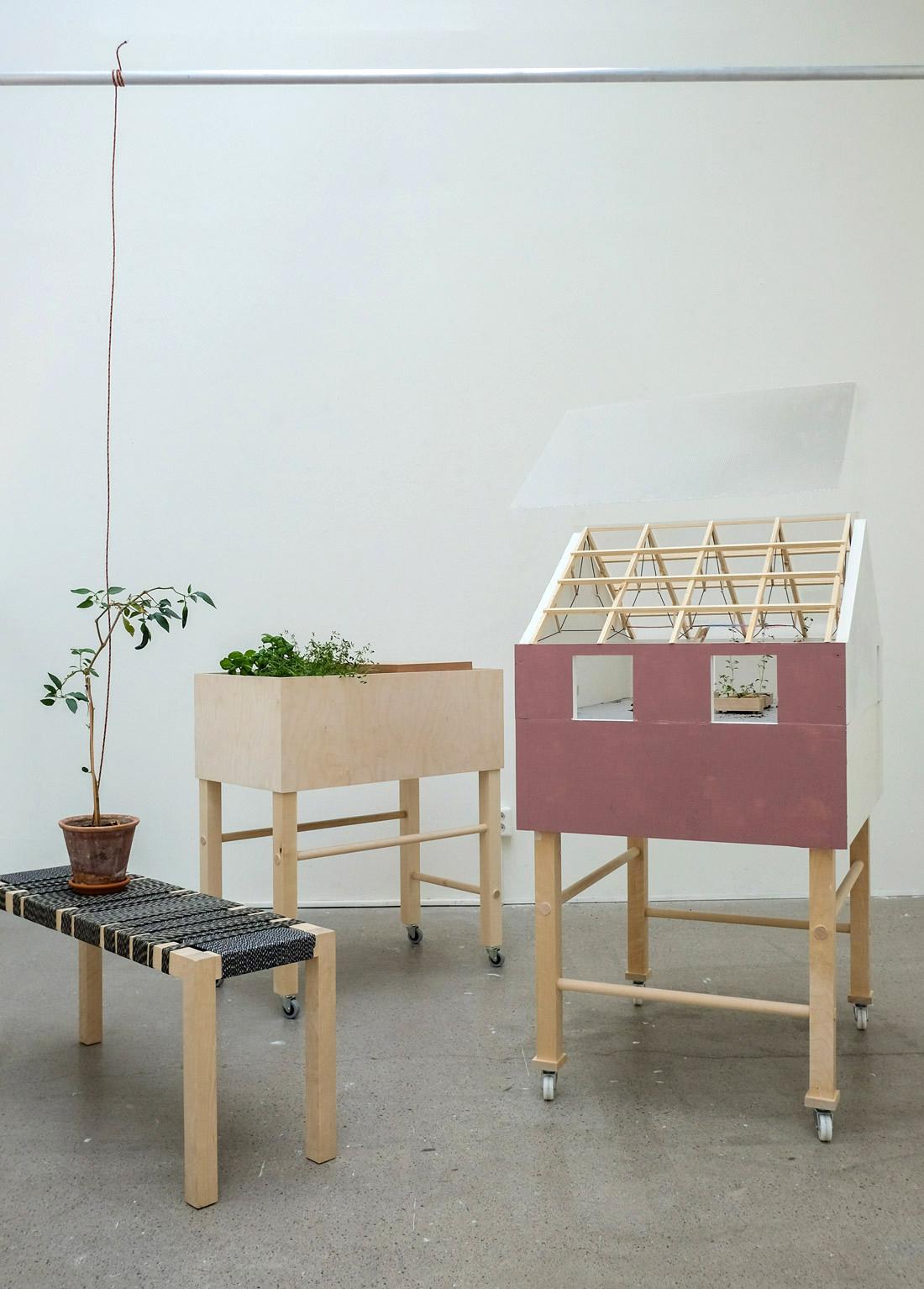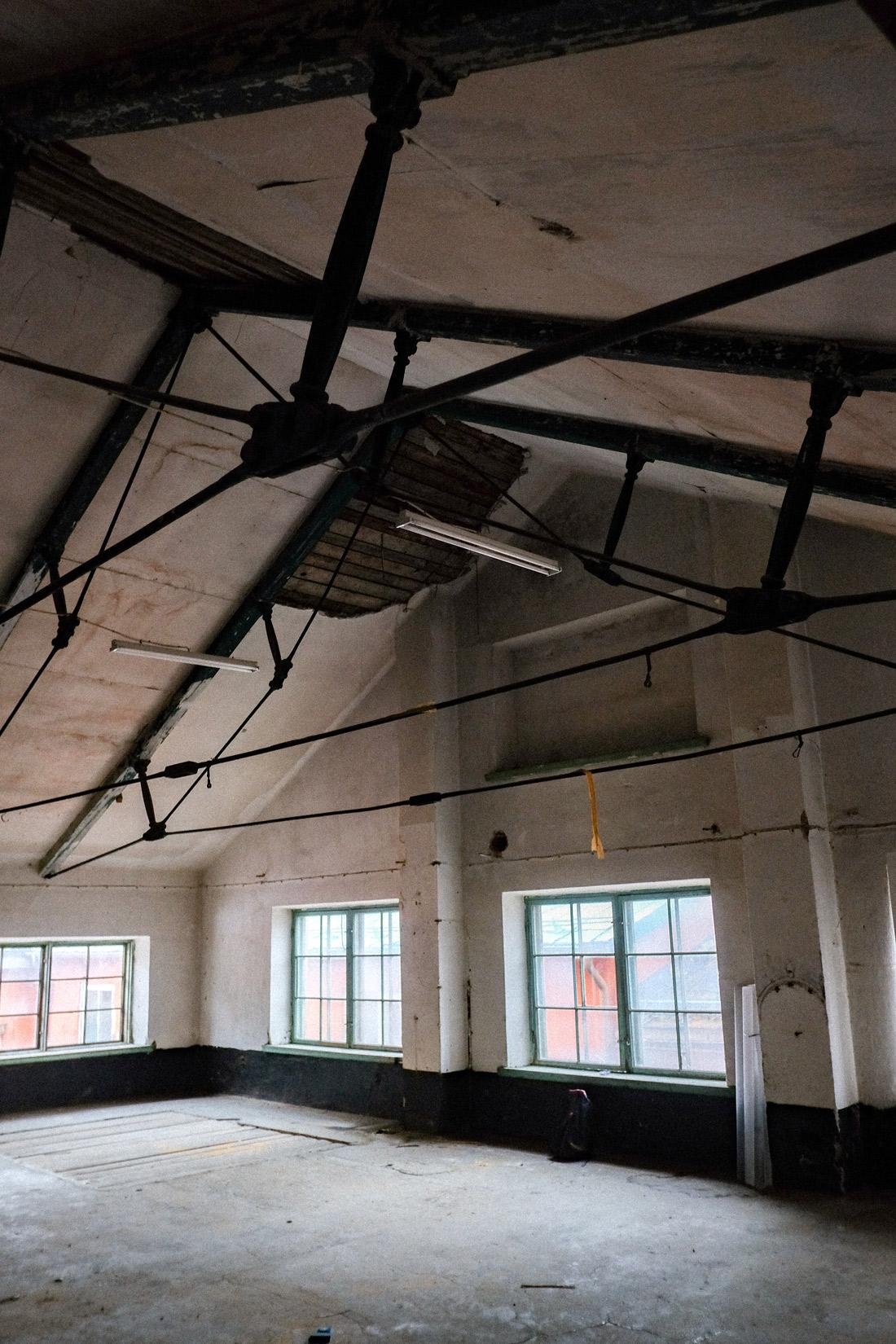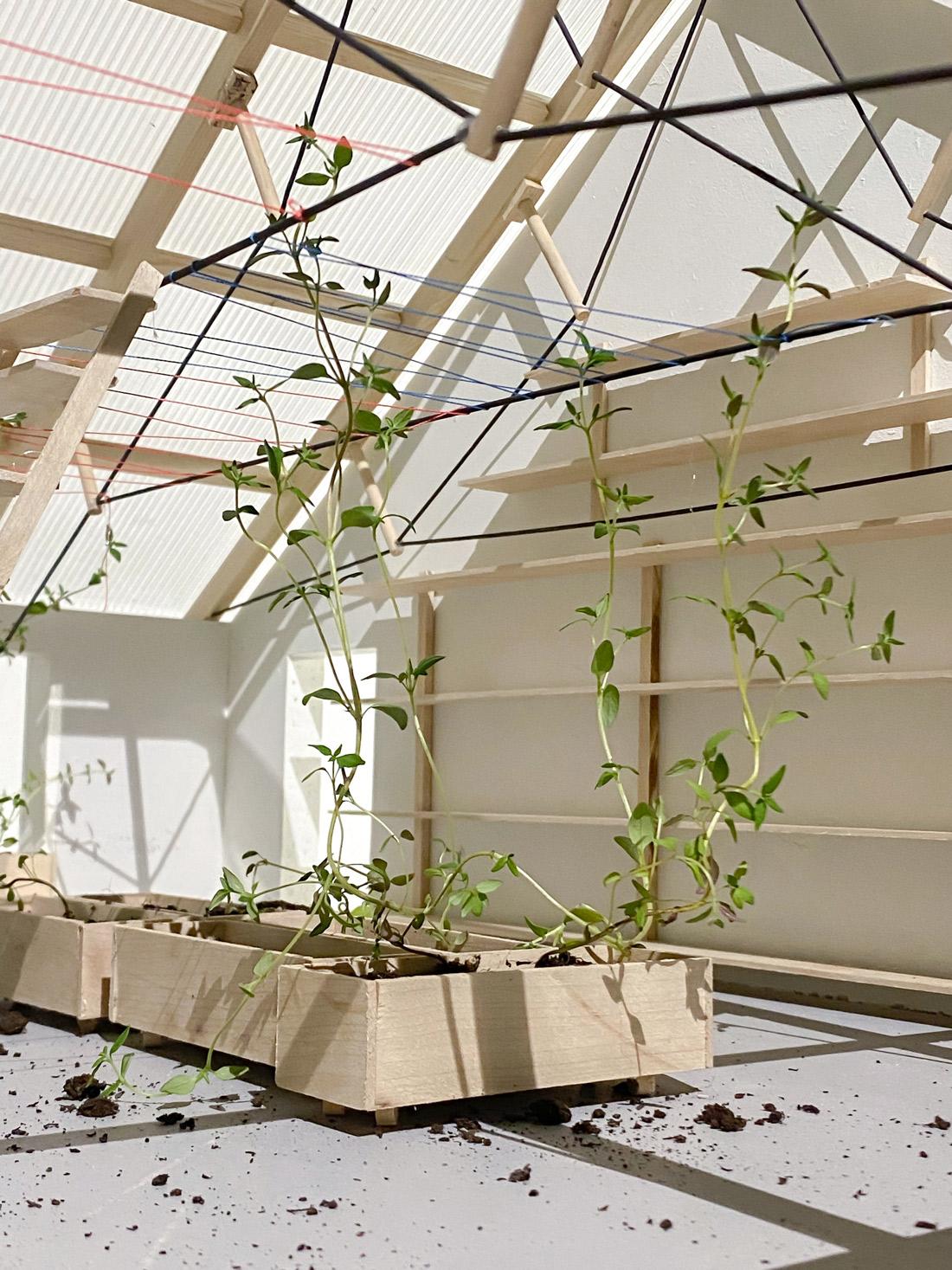Aksel Hahn
 Scale model and furniture prototypes
Scale model and furniture prototypesClimate change means that arable land will shrink and be redistributed globally. Through small-scale agriculture, urban populations can become more resilient to changes in a global food industry. A general popular interest in farming would benefit from being treated as part of common knowledge, rather than being viewed as a hobby for some. The modern separation between agricultural production and the urban lifestyle needs to be bridged in local settings, both spatially and culturally.
There’s a booming interest for cultivation in Sweden. However, the places where amateur farmers can meet are few. Kolonilotter* are exclusive, and Stockholm’s tradition of small-scale commercial gardens is outcompeted by global market forces.
How can the cultivation movement be captured in a space where it can become a shared activity?
My degree project is based on the idea of the new cultivation movement. By understanding food production as a spatial challenge, an architectural project can be formulated in order to develop models that connect knowledge in a direct relationship with the surrounding context. My reprogramming of a former foundry in Axelsberg outside Stockholm into a local greenhouse for collective use is an example of such a model. It becomes a place for knowledge sharing where a collective and local understanding of biodiversity and sustainable food production can be developed.
*Referring to the Swedish phenomenon of allotment gardens, associations where small parcels of arable land are distributed among members.

The attic in Henriksberg
